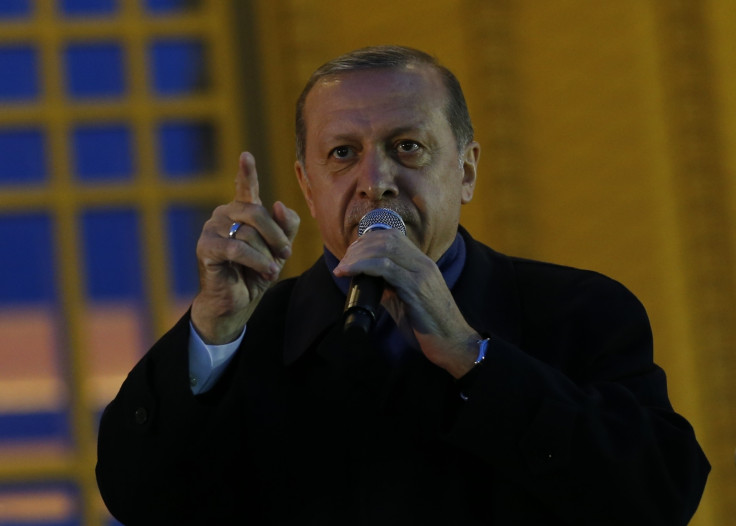Turkish President Erdoğan warns OSCE election observers to 'know your place'
The president has shrugged off talks of a recount in the voting outcome.

Turkish President Recep Tayyip Erdoğan has rejected the findings of the Organisation for Security and Co-operation in Europe (OSCE) that claimed his victorious referendum result to seize new powers was marred by "inequality" and biased media.
Erdoğan has boldly told the observational group, who have carried out their investigation from 17 March, "know your place".
"The referendum took place on an unlevel playing field and the two sides of the campaign did not have equal opportunities," said Cezar Florin Preda of the mission observation.
The observer mission said the process of voting was mostly orderly but criticised the decision by the country's election board to count unstamped ballots as illegal.
Erdoğan has been defiant about any notion of a recount in the vote, which opposition members have called for after the three million unstamped votes were accepted by the Supreme Electoral Board (SBE).
"There are those who are belittling the result. They shouldn't try, it will be in vain. It's too late now," he said.
Head of the observation mission, Tana de Zulueta, said voting freedoms had been violated due to restricted access to a "plurality of views" by the media.
She said: "Our monitoring showed the 'Yes' campaign dominated the media coverage and this, along with restrictions on the media, the arrests of journalists and the closure of media outlets, reduced voters' access to a plurality of views."
The OSCE is a European human rights body which Turkey is a member of. More than 80% of voters turned out in the ballot which gives sweeping new powers to Erdoğan. Opposition parties said they will contest the result and the Republican People's party, the largest bloc in the opposition, said the result should be annulled.
© Copyright IBTimes 2025. All rights reserved.





















